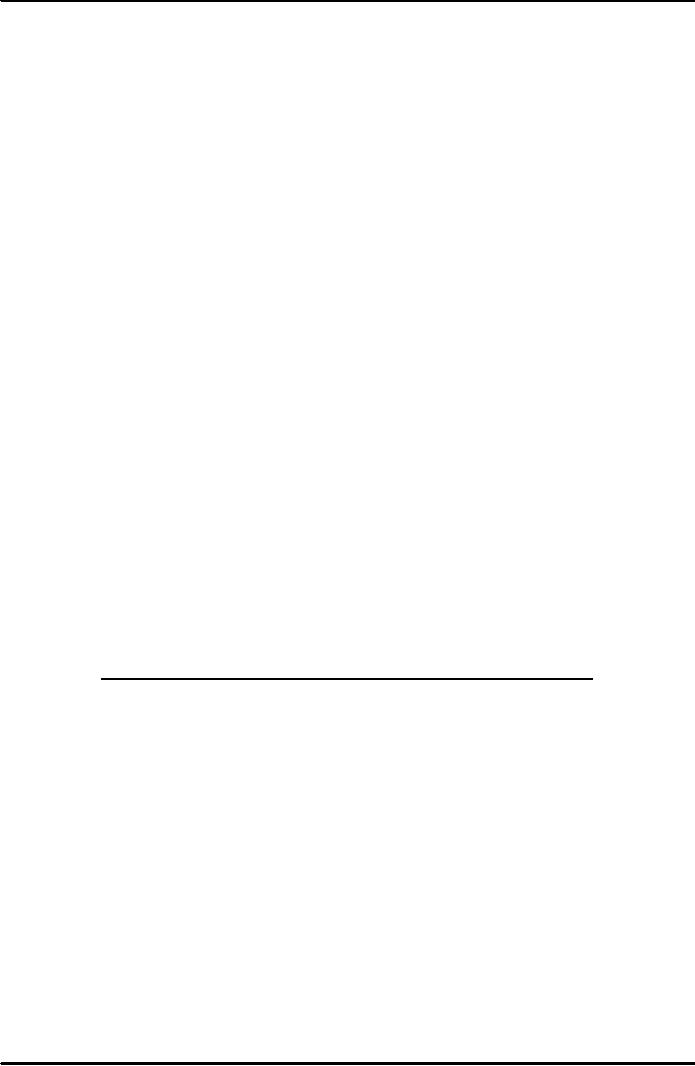 |
WORLD TRADE ORGANIZATION (WTO):PAKISTAN & WTO. III |
| << WORLD TRADE ORGANIZATION (WTO) PAKISTAN & WTO. III:Agriculture |
| WORLD TRADE ORGANIZATION (WTO):CONCLUSIONS AND RECOMMENDATIONS >> |

SME
Management (MGT-601)
VU
Lesson
43
WORLD
TRADE ORGANIZATION
(WTO)
PAKISTAN
& WTO. III
WTO
AGREEMENTS ON TBT AND
SPS
To
meet the requirements of WTO
Agreements on Technical Barriers of Trade
(TBT) and Sanitary
and
Phytosanitary
Standards (SPS), Pakistan
has taken a number of key
initiatives aimed at strengthening
technical
institutions capabilities in standard
setting, compliance.
In
Pakistan, ISO9000 and ISO14000
certification is rising and reportedly
now well over 3,000
companies
are
ISO 9000 certified. as for
ISO 14000 certifications, out of a
total of 103 countries,
Pakistan ranks 56th
with
only ten ISO 14001 certified
firms while India is 19th.
All these companies are
certified by foreign
based
bodies. The problem with
foreign certification bodies is
that notwithstanding the fact that they
are
accredited
by reputable accreditation bodies, very
few have been listed for
surveillance audits in
Pakistan.
This
greatly reflects on the performance of
these certification
bodies.
Against
this backdrop, Pakistan National
Accreditation Council (PNAC)
was set up in 1998 in
Ministry of
Science
& Technology an din 1999, under
ADB-assisted Trade Export
Promotion & Industry
Program
(TEPI).
Project, it launched the accreditation
services for ISO 9000/ISO
14000 certification bodies
and
ISO-17025
laboratory certification.
According
to Pakistan Country Report on Trade
and Sustainable Development,
prepared by Sustainable
Development
Policy Institutes (SDPI), in October
2002, the TBT and SPS
agreements present both
an
opportunity
and constraints. The two
agreements seek to increase
market access for the exports of
its
member
countries. However, the prerequisite is
that they abide by the strict rules the
WTO has formulated
for
the development of mandatory technical regulations,
voluntary standards and
conformity assessment
procedures.
This is where developing
countries like Pakistan come
up short. They do not possess the
institutional
and technical capacity to develop,
advocate and formalize such
standards in WTO for a,
nor
the
conformity assessment and
accreditation bodies to certify
that domestic industries are
complying with
international
standards. While the WTO, in
principle, offers technical assistance to
developing countries to
develop
these capabilities, the concern
expressed by various stakeholders
suggest that Pakistan has
not
tapped
into these
opportunities.
ROLE
OF EXPORTERS IN TACKLING NON TARIFF
BARRIERS
Some
of non-tariff barriers can be
tackled by the exporters themselves by
ensuring that they adhere
to
quality
and standards requirements of the
importing countries. For this
purpose they need to
plan
production
and packaging methods
especially for the export
markets.
�
The
manufacturing techniques must be carefully
selected so as to insure that the
resultant products
do
not cause any harm to
human, animal or plant life
or health.
�
The
exporters need to carefully study the
laws and regulations of the
importing countries and
their
likely
impact on the exports. similarly they should also
carefully examine the notices or
notification
made
by the importing countries under the Agreement on
Application of Sanitary
and
Phytosanitary
measures and the Agreement on Technical
Barriers to Trade.
�
The
exporters should maintain an effective interaction
with their counterpart associations
etc. in
the
importing countries. Any
difficulties due to technological or
economical limitations must
be
adequately
brought forward to the notice of the
Government. Most of the WTO
Agreements
envisage
special and preferential treatment to
developing countries. Specific
problems being faced
and
the favours required should therefore, be identified.
This may help the Government
to have
effective
bilateral consultations with the
concerned countries and to
seek specific
dispensation.
117

SME
Management (MGT-601)
VU
Since
any dispute in the WTO can
be raised by the Governments only, the
exporters will do well to
fully
cooperate
with their Government and to
provide it with all the
necessary information through
their
associations.
IMPACT
OF REDUCTION OF TARIFF AND NTBs BY
DEVELOPED COUNTRIES
Developed
countries committed to a 40 percent
reduction in the average tariff on
industrial products from
6.2
percent to 3.8 percent.
While these cuts will
improve access, their impact
has been small because
tariffs
on
manufactures in industrial countries
were already low (except
apparel). Pakistan's exports to OECD
will
face
average rates of 6.9
percent. However, textile
and clothing products, which
account for 57 percent
of
our
exports to OECD received below
average tariff reduction of 22
percent, meaning that
developed
countries
will reduce tariffs from
14.6 percent to 11.3 percent.
Exports of leather products and travel
goods
are
also important to Pakistan
but this again received
below average 18 percent
tariff reduction.
After
the complete phase out of quota
restriction is feared that developed
countries would resort to
use of
NON-Tariff
Barriers like imposing requirement of
environment and labour
standards and use of
child
labour
etc. to protect their own
interests.
118
Table of Contents:
- THE HISTORY:Cottage Industry, CONCEPT OF SMALL BUSINESS
- THE RELATIONSHIP BETWEEN SMALL AND BIG BUSINESS:The SME’S in Pakistan
- THE ROLE OF ENTREPRENEURSHIPS IN SMEs:Focus and Perseverance Guide the Entrepreneur
- THE ROLE OF ENTREPRENEURSHIPS IN SMEs:Kinds of Entrepreneurs
- SMALL ENTREPRENEURS IN PAKISTAN:National Approaches
- THE DEVELOPMENT OF SMES IN PAKISTAN:The Industrial History of Pakistan
- GOVERNMENT’S EFFORT TOWARDS SME DEVELOPMENT:Financing Programs
- THIS LECTURE DEFINES THE ROLE OF NGOS AND SMEDA:Mission Statement
- ISSUES AND POLICY DEVELOPMENT FOR SME:Monitoring Developments
- ISSUES IN SME DEVELOPMENT:Business Environment, Taxation Issues
- LABOR ISSUES:Delivery of Assistance and Access to Resources, Finance
- HUMAN RESOURCE DEVELOPMENT:Market and Industry Information, Monitoring Developments
- MARKET AND INDUSTRY INFORMATION:Measuring Our Success, Gender Development
- LONG TERM ISSUES:Law and Order, Intellectual Property Rights, Infrastructure
- THE START UP PROCESS OF A SMALL ENTERPRISE:Steps in Innovative Process
- TECHNICAL FEASIBILITY:Market Feasibility, Market Testing
- FINANCIAL FEASIBILITY:Financial resources and other costs, Cash Flow Analysis
- ASSESSMENT OF PERSONAL REQUIREMENTS AND ORGANIZATIONAL CAPABILITIES:Analysis of Competition
- Post Operative Problems of a New Enterprise:Environmental Causes
- HOW TO APPROACH LENDERS:Bank’s Lending Criteria, Specific Purpose, Be Well Prepared
- WHAT A BANK NEEDS TO KNOW ABOUT YOU:General Credentials, Financial Situation
- COMMERCIAL INFORMATION:Checklist for Feasibility Study, The Market
- GUARANTEES OR COLLATERAL YOU CAN OFFER:Typical Collateral
- Aspects of Financial Management:WINNING THE CASH FLOW WAR, The Realization Concept
- MEANING OF WORKING CAPITAL:Gross Working Capital, Net Working Capital
- RECRUITMENT, SELECTION AND TRAINING:Job Description, Job Specification
- SELECTION AND HIRING THE RIGHT CANDIDATE:Application Blank, Orientation
- TRAINGING AND DEVELOPMENT:Knowledge, Methods of Training
- CONDITIONS THAT STIMULATE LEARNING:Limitations of Performance Appraisal, Discipline
- QUALITY CONTROL:Two Aspects of Quality, Manufactured Quality
- QUALITY CONTROL:International Quality Standards, MARKETING
- MARKETING:Marketing Function, MARKETING PROCESS - STEPS
- MARKETING:Controllable Variable, Marketing Uncontrollable, Marketing Mix
- MARKETING:Demerits of Product Mix, Development of new product, SMEDA
- ROLE OF TECHNOLOGY:Training programmes, Publications
- ROLE OF TECHNOLOGY:Measure to Undertake for Promoting Framework.
- EXPORT POTENTIAL OF SME IN DEVELOPING COUNTRIES I:Commonly Seen Assistance Programme
- EXPORT POTENTIAL OF SME IN DEVELOPING Countries. II:At the national level
- WORLD TRADE ORGANIZATION (WTO):WTO Agreements: Salient Features
- WTO MINISTERIAL CONFERENCES:PAKISTAN AND WTO
- WORLD TRADE ORGANIZATION (WTO) PAKISTAN & WTO. II:International Treaties
- WORLD TRADE ORGANIZATION (WTO) PAKISTAN & WTO. III:Agriculture
- WORLD TRADE ORGANIZATION (WTO):PAKISTAN & WTO. III
- WORLD TRADE ORGANIZATION (WTO):CONCLUSIONS AND RECOMMENDATIONS
- SUMMARY & CONCLUSIONS:Financing Tool, Financing Tool